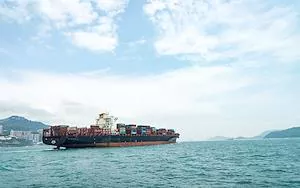Federal Court of Appeals Clarifies What Rights Crew Members Have to Demonstrate to Seize or Bring Suit in Cases of Assistance or Salvage
The Argentine National Federal Civil and Commercial Court of Appeals dismissed a motion in extremis filed by the plaintiffs to reverse the denial of a seizure and restraint of navigation requested on the basis of an alleged assistance and salvage.

On November 11, 2008, Division III of the Argentine National Federal Civil and Commercial Court of Appeals dismissed a challenge in extremis of the Court’s prior decision to dismiss a plaintiffs’ appeal against the lower Court’s rejection of a seizure and interdiction to navigate in the plaintiff’s initial brief. The challenged decision cannot be accessed, however, because the case is classified.
In its original decision, the Court held that the requirement in article 536 of Law No. 20,094 (Navigation Law), under which vessels are to be seized in cases of collision or assistance and salvage, was not duly demonstrated with the submission of a statement to the maritime authority made by the captain, pilot or agent of the claimant vessel.
The plaintiffs, in challenging the Court’s decision, contended that the Court had ignored the fact that the statement was submitted by the highest ranking officers for the type of vessels involved, with the same rights and obligations as captain. Thus, the plaintiffs requested that the decision be reconsidered and that the requested seizure be ordered.
The Court, in turn, held that the challenged decision does not have the character of a simple ruling and that, furthermore, in the case at law, there is no evident error for the Court to correct by means of the filed motion. Therefore, the remedy was formally dismissed.
The Court further added an analysis of the plaintiffs’ argument as to their status as assistance and salvage wage creditors. According to the Court, article 378 of the Navigation Law establishes that in cases of assistance and salvage, it is not only the crew but also the owner or operator of the assisting vessel, without whom no service can be rendered, who are creditors of the salary.
However, because no active solidarity among the interested parties emerges clearly from the aforementioned article, the Court deemed that one cannot be presumed or extended to its principles and effects. Furthermore, article 579 of the Navigation Law establishes that the captain and his crew have the right to intervene in the lawsuit for recovery of assistance and salvage. Likewise, they have the right to give judicial notice to the shipowner to file the relevant action for recovery and, in case of failure to do so within the term fixed by the court, they may do so at their own expense.
However, the Court emphasized that in the present case, the plaintiffs had not even alleged that the owner of the assisting vessel had been notified by its crew of the claim; and, instead, they claimed to have the right to bring the action on their own right.
In conclusion, the Court upheld the denied seizure and prohibition to navigate issued by the trial court based on articles 378 and 579 of the Navigation Law, finding it to be the right decision because the invoked right had not been duly demonstrated.
Case: “Miniello, Marcelo Facundo y otros c/ Bq Salvador y otros s/ embargo de buque/interdicción de navegar” Docket No. 7.968/2021, Federal Civil and Commercial Court of Appeals.
This insight is a brief comment on legal news in Argentina; it does not purport to be an exhaustive analysis or to provide legal advice.